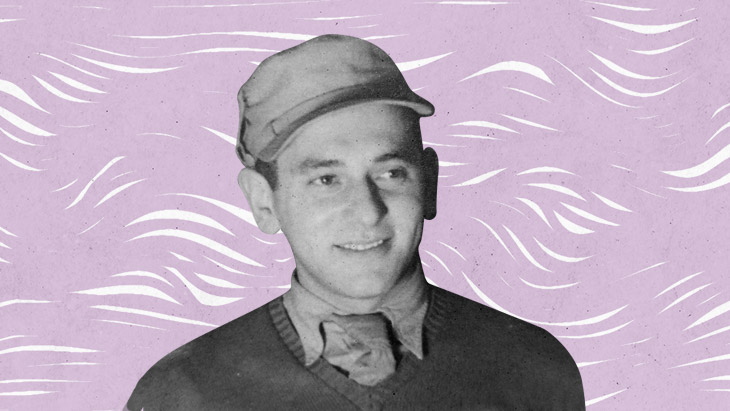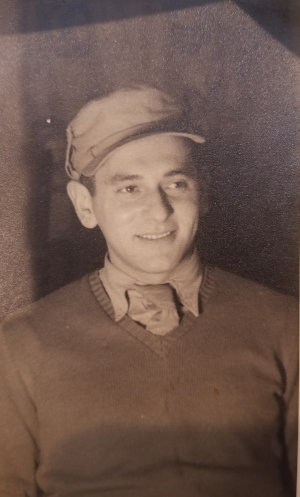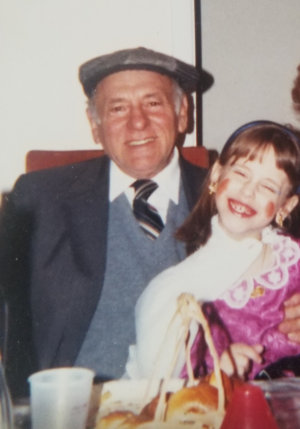 Raise a Glass to Freedom
Raise a Glass to Freedom


4 min read
4 min read
11 min read
6 min read
My father didn’t know if I was his daughter or his sister, but I’ve always known exactly who I am. I am the little girl my father adored.
We were sitting in the doctor’s waiting room, when my father turned and said something that stunned me. "Are you my daughter or my sister?"
My heart broke as I stared at him mutely.
The doctor told us my father had Alzheimer’s and explained that the prognosis was dire. He was right.
Nothing in my life had prepared me for this. I was facing a battle on two fronts, emotional and physical, and I was unprepared for this shift in my role. The disease didn’t snatch him away, suddenly. Instead, it slowly took hold of him, bit by bit, robbing him and us of his personality and ability to function.
It made me sad to watch my father try and hide his inability to read the clock. After my father got into a fender bender, I brought him to his court appearance. Standing next to him in front of the judge forced me into a balancing act – keeping my father’s dignity intact while making sure he couldn’t get behind the wheel again.
As the disease continued to progress, his behaviors became more and more bizarre. Finding his missing shoe in the desk drawer after hours of searching showed me how far away from reality this disease would lure him. His angry outbursts, so out of character for him, filled me with anguish and loss. These episodes forced me to face the harsh realities of this disease. Coping with it demanded a certain type of strength, strength I had to dig deep to find. I knew I had it. After all, I was my father’s daughter – the daughter of a man who survived the Holocaust – and if he could get through that, then I could get us through this. I would do much more than survive. I would thrive and give my father everything I was capable of giving him – everything he deserved to have.
 My father, after the war
My father, after the war
Five years after the initial diagnosis, we had to confront another painful truth – we could no longer provide my father with the level of care he required to keep him safe at home. He needed to move to a skilled nursing facility. This devastated me.
After we settled him into his room and it was time to go, I thought to myself, How can I leave him here? He doesn’t know where he is. Even though I knew my father was suffering from a disease that prevented him from understanding what was happening, I couldn’t help but feel I was abandoning him. There was no way for me to explain that we would come back to see him soon.
Something else was bothering me, too. At the onset of his symptoms, my father would drift in and out of different states of cognition and awareness. Sometimes he could be entirely lucid, but at other times he would be highly confused and agitated. One day, while in a state of agitation, he pointed his finger at me and said, “Eyn tog vest du mikh areinshtellen in a nursing home.“ (One day you’re going to put me in a nursing home).
His words struck me like a blow. I was so devoted to my father, what would make him say that about me? The afternoon we admitted him to the nursing home, I remembered his accusation. It reverberated in my ears like the clang of a jail cell slamming shut.
Every Sunday, we would make the one-hour drive to the nursing home to visit my father. These visits were emotionally draining. My father had stopped recognizing me. He didn’t know I was his daughter, or even wonder whether I was his sister.
Things continued like this for years. I rarely missed a Sunday. Towards the end of his life, it seemed pointless visiting him because by then he didn’t even know I was in the room with him. But I knew, and I wanted to be there for him, and for myself. During the ten years of his illness, I discovered what caring for an aging parent means, but I learned something far deeper than that.
Infants are born helpless and the world revolves around them. Parents give and give and keep on giving. Children grow up, interact with others, and learn that relationships are reciprocal. However, the parent-child relationship remains static. The parents remain the giver, the child the taker. That is the natural order of the world – until the child becomes the parent’s caregiver.
 My father with my daughter
My father with my daughter
Struggling with the enormous responsibility of caregiving often leads us to re-experience what it was like when we were young and dependent on our parents to meet our needs, and how well they met those dependent needs. When caring for our parents, we mirror how they cared for us. We do this less from intent and more from implicit memory. When a parent’s love is part of our implicit memory, we reflect this love in the way we care for them. While caring for my father, I was echoing the love and devotion my father had shown me.
But what happens when the parent-child relationship was conflicted? Old feelings that were buried long ago could resurface. Adult children who didn’t feel their parent’s love are caught by surprise when feelings of guilt or resentment resurface. How do they wrestle with the demands of giving physical and emotional support to a parent who did not, or could not meet their needs when they were a youngster? Some days they are able to give their parent what they never received from them. Other days they just can’t. What drives these variant behaviors?
In all likelihood, on those “just can’t days” they are in touch with what they were not given. For them, caring for their parent is not just about the caregiving, it’s about reliving their painful childhood. No matter how old we are, there is a part of us that will always be our parent’s child.
When my father and I sat in the doctor’s waiting room so many years ago, my father was confused. He didn’t know whether I was his daughter or his sister, but I’ve always known exactly who I am. I am the little girl my father adored.
I remember my father, Yissachar Dov ben Yaakov, with love and honor on his 13th yahrzeit. May his neshama have an aliya.
